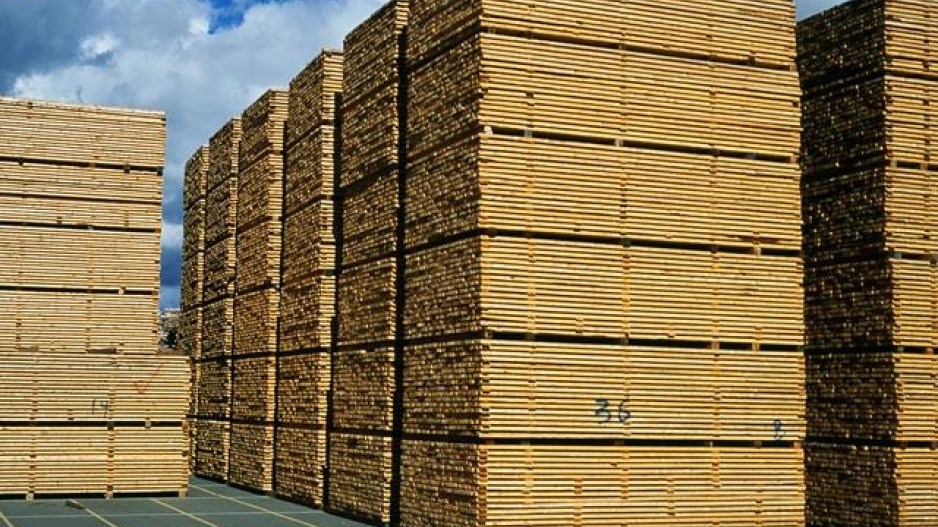B.C. Forests Minister Doug Donaldson left today, November 10, on what is being billed as the “largest-ever” trade mission to China, with the hope of expanding B.C.’s growing share of the Chinese lumber market.
Donaldson is leading a mission of 30 forest company executives to both China and Japan. From November 12 to 17 they will meet Chinese government and business leaders in Shanghai, Nanjing and Tokyo.
Although he did not mention the dispute Canada is having with the U.S. over both softwood lumber duties and the North American Free Trade Agreement (NAFTA), it’s clear the mission is intended to reduce B.C.’s reliance on the U.S., which is still the largest market for Canadian wood products.
“We’re a new government and therefore people will want to understand what our emphasis is on the forest sector and I want top be able to emphasize that we’re a dependable source for very high quality fibre and high quality wood products for Chinese and Japanese markets,” Donaldson said at a press conference at Vancouver International Airport.
China is B.C.’s second largest market for lumber, followed by Japan. Last year, B.C. exported $1 billion worth of lumber to China and $725 million to Japan. It exported $4.5 billion worth of lumber to the U.S.
Japan’s population is aging and shrinking, however, which will mean a long-term decline in demand, making increased trade with China that much more important.
Despite new anti-dumping and countervailing duties of 20% levied against Canadian lumber, B.C. lumber sales to the U.S. remain strong, buoyed by a strong demand for lumber in the U.S. and higher prices.
While B.C.’s larger lumber companies may be able to absorb the duties and pass them onto U.S. customers, they will put a strain on smaller companies with narrower profit margins.
Selling lumber, whether to China or the U.S., isn’t the only challenge facing B.C.’s forestry industry, however.
The mountain pine beetle epidemic wiped out half of B.C.’s merchantable timber, and this summer, wildfires took out another 53 million cubic metres of merchantable timber – equivalent to one year of annual allowable cut.
During the election campaign, the NDP talked about addressing the long-standing concerns about the export of raw logs to free up more timber for local sawmills.
Asked if his government is contemplating new restrictions on log exports, Donaldson seemed to suggest it is considering at least reducing the volume of logs exported.
“What we know is that log exports have always been part of the B.C. forestry sector,” he said. “It’s an important part for financial viability for many of the forest sector companies. It enables them to log less financially viable parts of the forest.
“But what we want, and what we’ve clearly heard in the election, is that people want to see more logs processed in B.C. mills in order to ensure that there’s employment. So I think a better balance needs to be struck. The balance that we saw under the last government far too much emphasis on raw log exports.”




